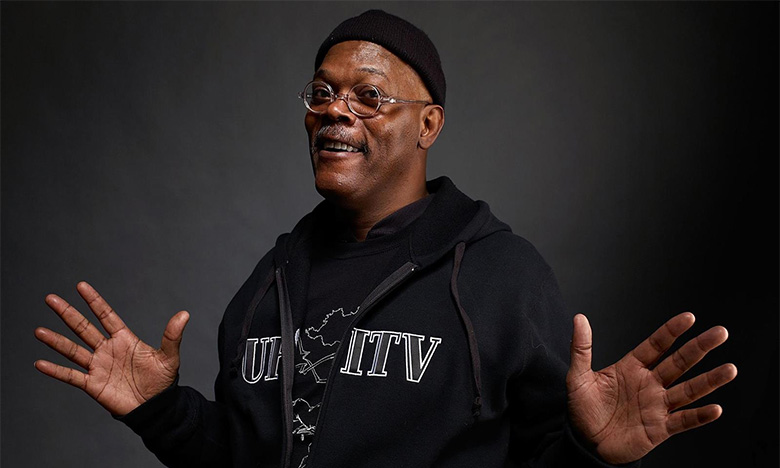The cool thing about those who hit it late in life — after the age of reason, or let’s say, 25 — is that they’ve usually lived enough life like normal folk to still be normal folk. In an earlier life as editor-in-chief of a men’s fashion mag in Los Angeles, I found this to be the case when interviewing celebrities. Billy Bob Thornton talks to strangers in the street about their dentist brothers. Ed Bradley, the late 60 Minutes colossus, would hold forth on his love of, of all things, sweaters.
There are exceptions, of course. Laurence Fishburne being the most notable when you consider that he hit it big at age 14 with Apocalypse Now, and he was a great interview. But exceptions the other way?
Let us introduce into evidence my briefest of times with Samuel L. Jackson. He who broke big with Pulp Fiction — if you can honestly say you remember his turn in Goodfellas as a soon-to-be corpse, we’ll give you a cookie — was damned near 46 years old when the Tarantino-helmed monster went on to gross $213 million worldwide and make a new star out of Jackson and a revived one of John Travolta.
What that number means in real and practical terms? Dollars- and cents-wise? According to Box Office Mojo, it means Jackson was, at least by 2011, ranked the highest all-time box-office star with more than $4.9053 billion total gross. That’s an average of $69.1 million per film, if you’re counting.
So it was with great joy that my boss had come into my office and asked if I had a writer in mind for the Jackson cover story for our debut issue.
I sure did, and after canvassing the world of writers far and wide? The best person for the job ended up being me.
I know, I know, but hear me out. Jackson, a perennial favorite of mine insofar as cinematic badasses went, was not only a killer on the screen but also had shown himself to be unforgiving off the screen with well-publicized feuds with Spike Lee (who had hired Jackson before he hit), rappers whose careers he didn’t want to legitimize and, most recently, with Twitter, Donald Trump and Black actors from Britain. Yeah. All of them.
In literary terms, some might have called those feuds examples of “foreshadowing,” but not me. I thought it’d be a case of game recognizing game. When I reached the set where Jackson had been shooting for the better part of the day for our cover, I was jacked. I was Jacksoned! I knew he had no siblings, that he had stuttered as a kid; I knew that he had traced his roots back to Gabon. And, according to my creative director, the spread of thousand-dollar trenchcoats, crushed-velvet apparel and Hugo Boss suits had come off without a hitch.
Now, usually I preferred to have the interview be the only thing on the calendar, but with A-list, you take what you can get. “You want to meet him?” A break had opened up in the photo session. In another hour we’d meet, but this was a chance to get some color. “Sure!”
“Mr. Jackson? This is Eugene Robinson, our editor-in-chief.” With a flourish, the creative director waved at me, and showtime, it was.
“Hey! How the hell are YOU?”

